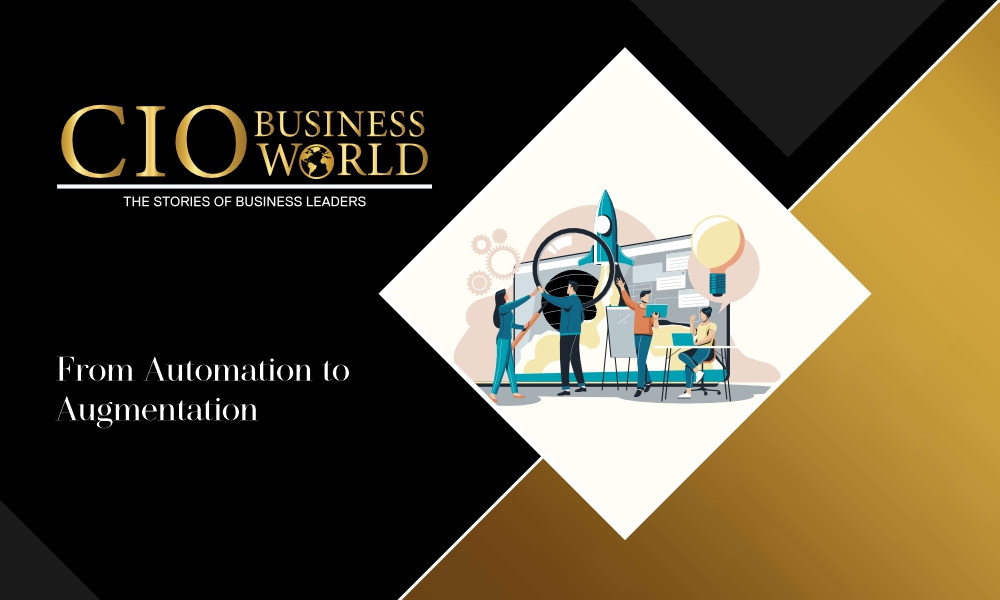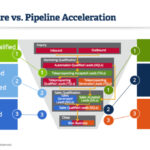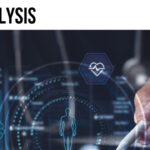Artificial Intelligence (AI) stands at the precipice of a transformative era, poised to redefine not just how we work and live, but fundamentally, what it means to be human. For decades, AI has been largely understood through the lens of automation – machines performing tasks faster and more efficiently than humans. Yet, the trajectory of AI is rapidly shifting from mere task replication to a profound partnership, heralding an age of augmented humanity. This isn’t just about robots taking jobs; it’s about intelligent systems extending our cognitive, creative, and physical capabilities in ways previously confined to science fiction.
- Understanding AI’s Current Frontier: From Algorithms to Intelligence
- The Paradigm Shift: From Automation to Augmentation
- AI in Healthcare: Precision Medicine and Diagnostic Enhancement
- Redefining Work: Human-AI Collaboration and New Skill Sets
- Personalized Education and Lifelong Learning with AI
- Ethical Implications and Societal Transformation
- Bias, Fairness, and Accountability in AI Systems
- Privacy and Data Governance in an AI-Driven World
- The Economic Landscape: Job Displacement vs. Creation
- Navigating the Future: Towards a Symbiotic Relationship
The questions confronting us are no longer simply about what AI can do, but what it should do, and how we can responsibly harness its immense power to forge a future where technology elevates the human experience. As we delve into the intricate layers of AI’s evolution, from its nascent algorithmic roots to the tantalizing prospect of Artificial General Intelligence (AGI), we must engage in a thought-provoking exploration of its ethical implications, societal transformations, and the very philosophical underpinnings of our existence. This journey demands foresight, critical thinking, and a commitment to shaping a future where AI serves as a powerful ally in humanity’s ongoing quest for progress and understanding.

Understanding AI’s Current Frontier: From Algorithms to Intelligence
The journey of Artificial Intelligence has been marked by periods of immense optimism and subsequent ‘AI winters,’ yet the current advancements are undeniably unprecedented. Today’s AI is largely characterized by narrow AI or weak AI, systems designed to perform specific tasks with high proficiency. From recommending movies on streaming platforms to powering sophisticated medical diagnostics, these systems leverage vast datasets and complex algorithms to identify patterns, make predictions, and execute actions. Understanding this foundation is crucial to appreciating the leap towards a more integrated, augmented future.
.jpg?width=800&name=momentos_importantes_Deep%20Learning%20-01%20(1).jpg)
The Evolution of Machine Learning and Deep Learning
At the heart of modern AI’s success lies machine learning (ML), a subfield that enables systems to learn from data without explicit programming. Instead of being told exactly how to solve a problem, ML algorithms are trained on examples, iteratively improving their performance. This paradigm shift moved AI from rule-based systems to adaptive, data-driven intelligence.
Deep learning (DL), a specialized branch of machine learning, has been the primary catalyst for the recent AI explosion. Inspired by the structure and function of the human brain, deep learning models utilize artificial neural networks with multiple layers (hence “deep”) to process complex data. These networks excel at tasks like image recognition, natural language processing (NLP), and speech synthesis, where traditional ML algorithms often falter. For instance, a deep learning model can distinguish between a cat and a dog with remarkable accuracy, or translate languages with nuanced understanding, by learning intricate features directly from raw data. The ability of these models to identify subtle patterns in massive datasets has unlocked capabilities that were once unimaginable, driving innovation across nearly every industry.
Current Limitations and Ethical Dilemmas
Despite its impressive capabilities, current AI faces significant limitations. Narrow AI, by its very definition, lacks common sense, general reasoning, and the ability to transfer learning across different domains. A system trained to play chess cannot inherently understand the nuances of a human conversation without specific retraining. This lack of generalization and contextual understanding remains a major hurdle.
Furthermore, the “black box” nature of many deep learning models presents an interpretability challenge. It can be difficult, if not impossible, to fully understand why an AI made a particular decision. This opaqueness raises serious ethical concerns, especially in high-stakes applications like criminal justice, loan approvals, or medical diagnoses. If an AI system denies a loan or misdiagnoses a patient, understanding the rationale behind its decision is paramount for accountability and fairness.
The data used to train AI systems also carries inherent biases. If training data reflects historical human prejudices or incomplete representations, the AI will inevitably learn and perpetuate these biases. This can lead to discriminatory outcomes, exacerbating existing societal inequalities. Bias in AI is not merely a technical glitch; it’s a profound ethical challenge demanding meticulous data curation, algorithmic fairness, and diverse development teams. Addressing these limitations and ethical dilemmas is not just about refining algorithms; it’s about shaping the moral compass of our technological future.

The Paradigm Shift: From Automation to Augmentation
The most compelling vision for AI’s future lies not in replacing human intelligence, but in augmenting it. This paradigm shift moves beyond simple automation of repetitive tasks to creating symbiotic relationships where AI enhances human capabilities, creativity, and decision-making. Instead of viewing AI as a competitor, we begin to see it as a powerful co-pilot, extending our reach in unprecedented ways. This augmentation promises to unlock new frontiers in various sectors, from personal health to global education.
AI in Healthcare: Precision Medicine and Diagnostic Enhancement
In healthcare, AI is poised to revolutionize patient care by moving beyond generalized treatments to highly personalized interventions. Precision medicine, a core tenet of augmented healthcare, leverages AI to analyze vast amounts of patient data – including genomic information, medical history, lifestyle, and environmental factors – to predict disease risk, personalize drug dosages, and recommend tailored treatment plans. This level of individual customization can significantly improve treatment efficacy and reduce adverse reactions.
Beyond precision, AI excels at diagnostic enhancement. Deep learning algorithms, trained on millions of medical images, can detect subtle anomalies in X-rays, MRIs, and CT scans that might be missed by the human eye. Early detection of diseases like cancer, diabetic retinopathy, and neurological disorders becomes more accurate and timely, leading to better patient outcomes. Furthermore, AI-powered systems can assist in drug discovery by simulating molecular interactions, dramatically accelerating the development of new therapeutics. This augmentation empowers medical professionals with unparalleled diagnostic tools and insights, allowing them to focus more on complex cases and direct patient interaction, ultimately transforming healthcare into a more proactive, personalized, and predictive field.
Redefining Work: Human-AI Collaboration and New Skill Sets
The fear of widespread job displacement due to AI automation is a valid concern, but a more nuanced perspective reveals a future of human-AI collaboration. Instead of full replacement, many roles will undergo transformation, requiring new skill sets focused on managing, training, and working alongside intelligent systems. AI will take over routine, data-intensive, and hazardous tasks, freeing humans to concentrate on activities requiring creativity, critical thinking, emotional intelligence, and complex problem-solving – areas where humans currently hold a significant advantage.
This shift necessitates a focus on reskilling and upskilling the workforce. Future employees will need to be proficient in “AI literacy,” understanding how AI systems function, their capabilities, and their limitations. Skills such as prompt engineering, data interpretation, ethical reasoning, and interdisciplinary collaboration will become increasingly valuable. For instance, an architect might use generative AI to explore thousands of design permutations in minutes, then apply their human judgment and aesthetic sense to select and refine the best options. A customer service agent, augmented by an AI assistant handling routine queries, can dedicate more time to resolving complex, emotionally charged customer issues. This evolution of work promises to elevate human potential, making jobs more fulfilling and productive by offloading the mundane to machines.
Personalized Education and Lifelong Learning with AI
Education, traditionally a one-size-fits-all model, is ripe for AI-driven transformation towards personalized learning. AI tutors and adaptive learning platforms can analyze a student’s learning style, pace, strengths, and weaknesses, then tailor content, exercises, and feedback accordingly. This means a student struggling with calculus might receive additional practice problems and different explanations, while a student excelling in literature could be challenged with advanced texts and analytical prompts – all in real-time.
Beyond the classroom, AI will become an indispensable tool for lifelong learning. In a rapidly changing world, the ability to continuously acquire new knowledge and skills is paramount. AI-powered platforms can curate personalized learning pathways, recommend relevant courses, and provide access to vast repositories of information, making education accessible and relevant throughout an individual’s career and life. Imagine an AI assistant that identifies emerging skill gaps in your profession and proactively suggests learning modules, connecting you with expert resources. This adaptive and accessible approach to learning fosters intellectual growth and ensures that individuals remain agile and competitive in an evolving global landscape.
Ethical Implications and Societal Transformation
As AI’s capabilities expand, so too do the ethical complexities and societal challenges it presents. The power of AI to analyze, predict, and influence human behavior demands careful consideration of its impact on fairness, privacy, and economic structures. Ignoring these profound implications would be a grave oversight, potentially leading to unintended consequences that could undermine the very fabric of society. A thought-provoking approach requires us to confront these issues head-on, seeking proactive solutions rather than reactive damage control.
Bias, Fairness, and Accountability in AI Systems
One of the most pressing ethical concerns is the issue of bias in AI systems. AI learns from data, and if that data reflects historical human biases, societal inequalities, or underrepresentation of certain groups, the AI will perpetuate and even amplify those biases. This can manifest in discriminatory loan approvals, biased hiring algorithms, unfair judicial sentencing recommendations, or facial recognition systems that perform poorly on certain demographics.
Ensuring fairness in AI requires a multi-faceted approach:
- Diverse Data: Actively collecting and curating datasets that are representative and free from historical biases.
- Algorithmic Audits: Regularly testing AI systems for discriminatory outcomes across different demographic groups.
- Transparency and Explainability: Developing “explainable AI” (XAI) that can articulate its decision-making process, allowing for scrutiny and intervention.
- Human Oversight: Maintaining human review and override capabilities, especially in high-stakes decisions.
- Robust Regulations: Implementing and enforcing comprehensive data protection laws, such as GDPR or CCPA, that grant individuals control over their data.
- Anonymization and Differential Privacy: Developing advanced techniques to protect individual identities while still allowing AI systems to learn from aggregated data.
- Consent and Transparency: Ensuring users fully understand what data is being collected, how it’s being used, and providing clear mechanisms for granting or revoking consent.
- Data Security: Investing in state-of-the-art cybersecurity measures to protect sensitive AI training data and user information from malicious actors.
- Investment in Education and Retraining: Government and industry must collaborate to provide accessible pathways for workers to acquire new skills relevant to the AI economy.
- Social Safety Nets: Exploring concepts like Universal Basic Income (UBI) or enhanced social welfare programs to support individuals during periods of transition or for those whose work is permanently automated.
- Understanding Algorithms: Basic comprehension of how algorithms work and their impact on daily life.
- Data Ethics: Awareness of privacy, bias, and the responsible use of data.
- Human-AI Interaction: Skills to effectively collaborate with AI tools and understand their outputs.
- Ethical Reasoning: Developing the capacity to deliberate on the moral implications of AI applications.
Beyond bias, the question of accountability is critical. When an autonomous AI system makes a harmful error, who is responsible? Is it the developer, the deployer, the data provider, or the AI itself? Establishing clear legal and ethical frameworks for accountability is essential to build trust and ensure responsible AI development. Without these safeguards, the promise of augmented humanity could devolve into a system that entrenches existing injustices.
Privacy and Data Governance in an AI-Driven World
AI thrives on data – the more data, the smarter the system. However, this insatiable appetite for information presents significant challenges to individual privacy. Every interaction with an AI system, every piece of data collected about our preferences, behaviors, and even biometric information, contributes to a digital profile that can be used for personalization, prediction, or even manipulation. The potential for surveillance, data breaches, and misuse of personal information grows exponentially as AI becomes more integrated into our lives.
Effective data governance is paramount. This includes:
The challenge lies in balancing the immense benefits of data-driven AI with the fundamental right to privacy. A thought-provoking approach to AI development must prioritize ethical data practices, recognizing that trust is the ultimate currency in an AI-powered future.
The Economic Landscape: Job Displacement vs. Creation
The economic impact of AI is perhaps the most widely debated and anxiety-inducing aspect of its future. While some foresee widespread job displacement as AI automates tasks across industries, others emphasize the potential for job creation and economic growth. The reality is likely a complex interplay of both.
AI will undoubtedly automate many routine, predictable, and physically demanding jobs. Manufacturing, logistics, administrative tasks, and even certain aspects of professional services are vulnerable to automation. This necessitates a proactive approach to economic transition, including:
However, AI also creates entirely new industries, roles, and economic opportunities. The development, deployment, maintenance, and ethical oversight of AI systems will require legions of data scientists, AI engineers, ethicists, trainers, and human-AI interaction specialists. AI can also boost productivity, leading to economic growth and the creation of new goods and services that improve quality of life. For example, the rise of e-commerce, while automating some retail roles, created vast new jobs in logistics, software development, and digital marketing.
The key is to manage this transition thoughtfully, ensuring that the economic benefits of AI are broadly shared and that no segment of society is left behind. This requires ongoing dialogue between policymakers, industry leaders, educators, and labor organizations to shape an inclusive and prosperous AI-driven economy.
Navigating the Future: Towards a Symbiotic Relationship
The future of AI is not a predetermined path but a landscape we are actively shaping through our choices today. To move towards a truly symbiotic relationship, where AI augments humanity in beneficial and ethical ways, requires intentional design, robust policy, and a globally informed citizenry. This isn’t just about technological advancement; it’s about societal wisdom.
Fostering AI Literacy and Critical Thinking
In an increasingly AI-driven world, AI literacy will become as fundamental as digital literacy. This means not just understanding how to use AI tools, but comprehending their underlying principles, capabilities, and limitations. Citizens need to understand how AI systems make decisions, how data biases can affect outcomes, and how to critically evaluate information generated or filtered by AI. This empowers individuals to engage with AI responsibly and to advocate for ethical development.
Educational systems must adapt to integrate AI literacy from an early age, fostering critical thinking about technology. This includes:
By fostering a well-informed populace, we equip individuals to be active participants in the AI revolution, rather than passive recipients of its effects. This collective understanding is vital for democratic oversight and responsible innovation.
The Role of Policy and Regulation
The rapid pace of AI development often outstrips the








